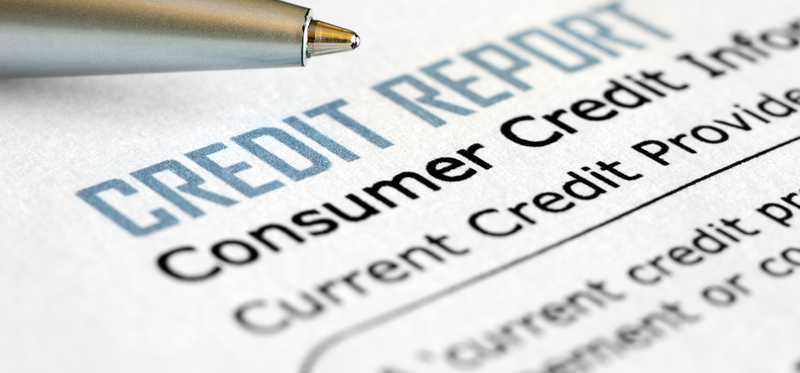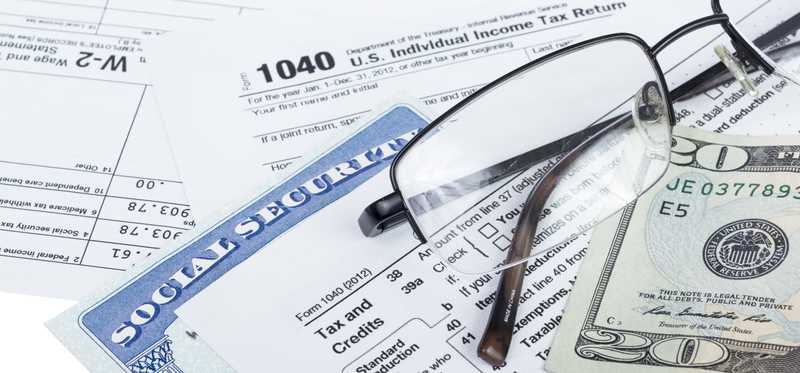8 Things to Do Before Applying for a Mortgage

8 Things to Do Before Applying for a Mortgage
Know what to expect
Buying a house is one of the largest financial commitments many people make in their lifetimes. Between the down payment, principal, interest, taxes, and insurance payments, utilities, maintenance, repairs, and updates, the financial outflows can be overwhelming.
A key aspect for most homebuyers is a mortgage -- a loan secured by the house that enables the buyer to pay for the cost of the house over time, instead of all at once. It’s a big deal to apply for and get a mortgage, and taking care of these eight items before you do will help you along the way.
ALSO READ: 3 Reasons Why This Overlooked Mortgage Option Might Be Your Best Bet
Previous
Next

1. Determine how much house you need
If your income is decent and your credit score is good, you might find that banks are willing to lend you more money than it takes to buy a house that meets what you really need out of a home. While it’s tempting to buy up to a larger house in a nicer neighborhood, remember that many of the costs -- not just the mortgage payment -- scale right along with the price of the home you’re buying. Keeping your home buying decision attuned to what you really need will help you keep your total costs in check.
Key factors to consider include:
- How many people will be living in the house?
- Is the school district a ‘must have’ of a ‘nice
to have’?
- What does the commute look like to work/grocery
stores/etc.?
- Is the neighborhood safe?
- How much work are you willing to do to update/upgrade/maintain
the home?
Previous
Next

2. Scrape together a down payment
Most lenders will give you better terms on your mortgage if you have a substantial amount of your own cash tied up in the home you’re buying. Generally speaking, you’ll need at least a 20% down payment to get the best rates and terms on your mortgage. That means that if your house costs $200,000, you’d need to cough up $40,000 of that amount yourself and be able to borrow the other $160,000.
You might be able to get a mortgage if you have a smaller down payment, but chances are that you’d pay a higher interest rate and/or be stuck paying private mortgage insurance on top of your mortgage. Those raise your cost of borrowing over time, which means you’ll end up paying more in the long run than if you had the down payment available.
Previous
Next

3. Check your credit report -- and clean up any errors
If you’re borrowing a large chunk of money, lenders want to know you’re a good risk before they offer you theirs. To see most of what the lenders see, you’ll want to check your credit report. You can get a free copy of your credit report from each of the major credit bureaus once per year by visiting AnnualCreditReport.com. From that report you can see which companies you owe money to, how much you owe, and whether or not you’re considered to be on time with your payments.
Around 20% of credit reports have errors in them, either because of things like identity theft or because of more mundane clerical errors in data entry. If you see errors in your reports, the bureaus have a process to allow you to challenge those errors to get them corrected. By correcting errors before you apply for your mortgage, you improve both your chances of getting that mortgage and getting good terms on it.
Previous
Next

4. Pay off what you can, and get current on everything else
In addition to wanting to see that you have a good history of managing your debts, mortgage lenders want to make sure you’re not over-extending yourself by taking on that large of a debt. They will calculate ratios based on how much you currently pay towards debt service and how much in total you will pay towards debt service once you have your mortgage.
Generally speaking, you’ll need to be putting less than 36% of your income towards debt service before considering your mortgage. Once your mortgage is factored in, you’ll absolutely need to keep that ratio below 43% of your income to have a qualified mortgage.
If that sounds like a crazy high percentage of your income to be putting towards debt, you’re absolutely right. The less you owe, the easier it is for you to make your payments on time and in full, and the more flexibility you have when things go wrong. By getting your other debts under control first, the less risk you’ll pose to the lender, and the better the overall deal you’ll qualify for.
ALSO READ: Mortgage Debt Is on the Decline -- and That Could Be a Very Encouraging Trend
Previous
Next

5. Document your income -- and the source of your down payment
Your lender will want to see proof that you make enough money to cover your mortgage payment as well as proof that you came up with the money for your down payment. Proof of income comes in the form of your W-2 or 1099 from work or investment income that you use to file your taxes. A recent paystub would also help showcase that you’re still earning the income you’re claiming as part of your ability to pay your mortgage.
Proof of down payment money comes from checking account, savings account, and brokerage account statements, along with explanations for any large deposits into those accounts in recent months. The lender is looking for evidence that the money you’re using to make your down payment is yours, and they prefer “seasoned” money over recent windfalls.
Seasoned money is money that you’ve saved up over time, and it’s preferable because it gives the lender confidence that you’re good with money. If the lender suspects your down payment money is a gift or loan from family members -- because it’s a recent deposit of a lot of money -- the lender will ask for documentation on where that money came from. If the lender isn’t satisfied with the explanation, it could jeopardize your ability to get favorable rates or the mortgage at all.
Previous
Next

6. Figure out what mortgage terms you want
The key choices you’ll make are the length of the mortgage and the rate type of the mortgage. The most common length for a mortgage is 30 years, followed by 15 years, but several other lengths are also possible. As a general rule, the shorter the length of the mortgage, the lower the interest rate you’ll pay on it, but the higher your monthly payments will be because you’re paying the balance down that much faster.
You can also choose between fixed rate and adjustable rate mortgages. With a fixed rate mortgage, your interest rate and the principal and interest part of your payment never move throughout the life of your mortgage. With an adjustable rate mortgage, your interest rate resets every year -- sometimes after a preset number of introductory years at a steady rate. With an adjustable rate mortgage, you take on the risk of rising interest rates, but the benefit is typically a lower starting rate than a fixed rate loan has.
Previous
Next

7. Avoid taking on any new debts around the time of your mortgage
If you’re buying a house, you’ll typically have a lot of expenses above and beyond the house payment. Things like renovating, buying new furniture, moving, fixing up your old place, and so on all require money. Avoid the temptation to borrow money for any of those items -- or anything else -- between the time you start shopping for a house and the time you close on your mortgage.
That can be trickier than it sounds. Even if the merchant offers you deferred payments like “no payments for 90 days” or interest free financing, it still counts as a loan and shows up on your credit report. If your lender sees you taking on excessive borrowing capacity before your mortgage is issued, it will react in a way that protects its interests. That likely means either cancelling your mortgage altogether or reducing the amount you can borrow based on your credit no longer being as strong as it had been previously.
Previous
Next

8. Research lenders before applying for your loan
The act of applying for credit -- whether or not you’re approved for that credit and regardless of whether you accept that credit -- causes an inquiry on your credit report. That inquiry will typically lower your credit score by a few points. If your credit is borderline, the impact to your credit score can be enough to knock you into a higher risk tier or out of contention for a mortgage altogether.
As a result, you’ll want to check around to see which select group of lenders you want to do business with before filling out the mortgage application. Banks and credit unions frequently post their current mortgage rates online, and other mortgage lenders often advertise on real estate listing or similar sites. By researching lenders in advance and limiting your applications, you reduce your credit inquiries and the cost and hassle of applying for your mortgage.
ALSO READ: How Rising Mortgage Rates Affect How Much You Can Borrow
Previous
Next

A home is a big commitment -- so plan for it
Your home may very well be the largest financial commitment you’ll make in your lifetime. By planning well for the financing associated with it, you can minimize the costs of ownership and put more of your hard earned cash towards what really counts, rather than towards fees, interest, and overhead costs. And that will go a long way towards allowing you to enjoy your home -- and the mortgage burning party you might want to throw once you’ve paid it off.
The Motley Fool has a disclosure policy.
Previous
Next
Invest Smarter with The Motley Fool
Join Over Half a Million Premium Members Receiving…
- New Stock Picks Each Month
- Detailed Analysis of Companies
- Model Portfolios
- Live Streaming During Market Hours
- And Much More
READ MORE
HOW THE MOTLEY FOOL CAN HELP YOU
-
Premium Investing Guidance
Market beating stocks from our award-winning service
-
The Daily Upside Newsletter
Investment news and high-quality insights delivered straight to your inbox
-
Get Started Investing
You can do it. Successful investing in just a few steps
-
Win at Retirement
Secrets and strategies for the post-work life you want.
-
Find a Broker
Find the right brokerage account for you.
-
Listen to our Podcasts
Hear our experts take on stocks, the market, and how to invest.
Premium Investing Services
Invest better with The Motley Fool. Get stock recommendations, portfolio guidance, and more from The Motley Fool's premium services.